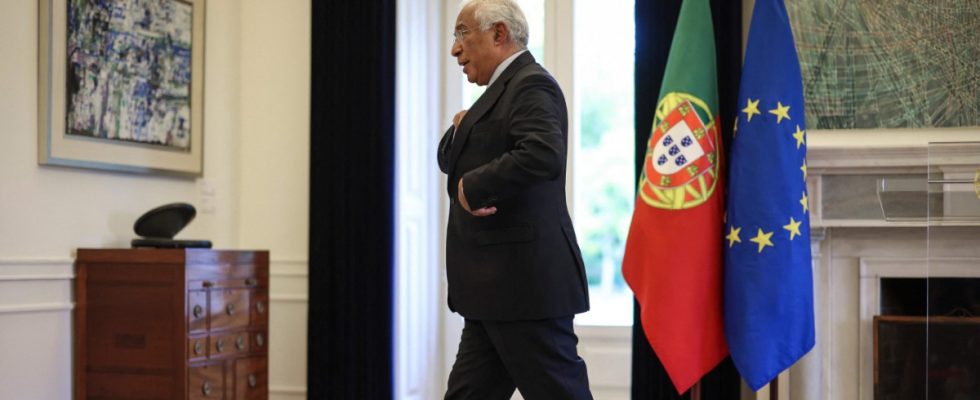The Prime Minister of Portugal, António Costa, who has been in power since 2015, surprisingly announced his resignation on Tuesday afternoon. He had previously visited President Marcelo Rebelo de Sousa twice at lunchtime at his residence in Belém to inform him of his decision. The president immediately accepted the offer to resign.
Shortly before, it had become known that the public prosecutor’s office was not only investigating the machinations of politicians and employees close to the socialist head of government, but that the responsible Supreme Court was also investigating Costa itself. This concerns allegations of corruption and taking advantage in the awarding of licenses for lithium mining and the production of green hydrogen in Portugal.
A few hours before Costa, who has ruled the country with an absolute majority in parliament in recent years, appeared in front of the television cameras to announce his decision, several arrests in his environment had become known. Among others, Costa’s head of cabinet and right-hand man, Vítor Escária, as well as the influential entrepreneur and Costa friend Diogo Lacerda Machado were arrested in the afternoon, as was the mayor of Sines, a port city where a gigantic plant for the production of hydrogen was to be built, as well a data center that is also in the investigators’ crosshairs. However, the details of the allegations against Costa and his confidants have not yet been revealed.
“It’s a phase of life that’s over.”
“I will not run for prime minister again,” António Costa assured the TV cameras. “It’s a phase of life that’s over,” he said. Criminal proceedings are rarely quick. He will certainly not wait for the results of the investigation to draw conclusions.
However, he denied wrongdoing in office and said he was “surprised by the actions of the public prosecutor.” Costa said: “I want to tell the Portuguese face to face that the exercise of any illegal or even reprehensible actions does not burden my conscience.” He said he was prepared to work with the justice system to find out the whole truth, “whatever the matter may be.”
“There is no situation in Portuguese constitutional history with such great institutional discredit,” constitutional lawyer Paulo Otero told the newspaper Public. “What is at stake is not suspicion against former rulers or a former prime minister, but against a sitting prime minister.”
The public prosecutor’s office had 42 apartments and offices searched
The public prosecutor’s office searched 42 homes and offices across the country on Tuesday morning, including the residence of Prime Minister António Costa as well as offices in the Ministry of Environment and Climate Protection, the Ministry of Infrastructure and the State Secretariat for Energy and Climate. According to the newspaper, 17 public prosecutors, three judges, two representatives of the bar association, around 145 officers from the responsible police authority and nine tax officials took part in the searches. Those arrested must now be brought before a judge within 48 hours.
The investigation, which also accuses the Minister of Infrastructure, João Galamba, and the President of the Portuguese Environment Agency, Nuno Lacasta, involves “crimes such as abuse of office, active and passive bribery of political officials and influence peddling,” said the Attorney General’s Office.
The scandal, the extent of which is deeply shaking Portugal’s political class, involves, among other things, the now failed megaproject H2Sines, which aimed to produce hydrogen with a production output of one gigawatt, which is equivalent to two nuclear power reactors. This electricity output should be generated using solar energy to produce hydrogen via electrolysis. The gas was to be used for domestic industry as well as for export.
Apparently there is now an accusation that individual companies were given preference when awarding contracts relating to the hydrogen project. There may also be subsidy fraud involved. The suspicion surrounding concessions for the exploration of lithium in mines at two locations in Portugal is similar.

